Yuval Levin has a typically insightful essay, A New Hope for Saving the Universities, at “Commentary.” In it he describes the interesting growth of centers of civic education within certain existing university structures–most (though not all) of them state schools–and the opportunities for university reform that they offer. The essay is replete with the themes that have characterized Levin’s work over the years: tradition vs. liberation, the human tendency to preserve as against the human tendency to tear down (and, one hopes, rebuild). Here is a bit:
“The university was not destroyed, but rather transformed, by the revolution of the past half-century. It has kept its trappings but replaced its ethos. The titles, the modes of governance, the deans and faculty senates, the tenure, the graduation gowns, and the ivy-covered buildings are still there. But they are now mostly populated by men and women with a very different understanding of the goals of the institution from that of their predecessors a few generations ago.
It is crucial to grasp this character of the revolution if the modern-day champions of the traditional academic vision are going to fight back effectively, because fighting back effectively will need to mean reinhabiting the university—populating regions of its faculty and administration with traditional academics again. In a sense, it will demand that academic traditionalists do some of what the revolutionaries did: act on a critique of the institution not by burning it down but by finding ways to occupy it and then to transform it from within.”
One question that the essay had me thinking about is the emphasis on “civic” as compared with “liberal” education. Many of the new centers that have sprung up emphasize political science and political theory, and many describe the aims of their institutions as concerning civic renewal, the capacity to speak together across difference, and so on. While there is certainly value in this sort of orientation, there is a danger that the centers will sideline other sorts of vital academic activities–ones also in need of reinvigoration, or ‘re-inhabititation’–that are not directed toward the study and practice of politics, free speech, talking together, and so on. Here is the way Levin puts it:
“Schools of civic thought will need political theorists, but they should also seek out other humanists and empirical and quantitative social scientists—particularly those eager to treat as open the questions that their disciplines have forced shut in recent decades…
And these schools will need to find ways to claim the mantle of genuinely liberal education, too. Liberal learning is not the same thing as civic learning. Socrates and Cicero had different aims and different dispositions toward their societies; the Greek elevated individual self-understanding as the foremost path to truth, while the Roman focused on the real-world responsibilities of the citizen. But these two modes of inquiry are deeply related nonetheless, and they need each other more than either tends to recognize.
Liberal education needs help resisting the urge to grow cynical, and civic education needs help to resist becoming doctrinaire.
The second half of the 20th century was an era in which the Socratic ethos was more dominant and in which Ciceronian civic thought needed to happen within a framework that understood itself as fundamentally critical and oppositional. That dynamic is now in the process of reversing, thanks to cultural trends that reach well beyond the university. The institutions that house the essential practices of the liberal society will increasingly have to justify themselves in terms of solidarity, and not just individual liberty. So liberal learning that wants to hold its society up to a demanding standard would be wise to make its home within self-consciously Ciceronian institutions that reinforce that society’s foundations.”
A very interesting, integrative, perspective on the Socratic and Ciceronian models. Are they really combinable in this way? Can liberal education resist becoming cynical if it is makes its home within the Ciceronian frame? Time will tell, I suppose. But Levin is certainly right that we do not need only schools of civic renewal. We need schools of academic renewal writ large, only a tiny fraction of which concerns matters of politics and governance.



